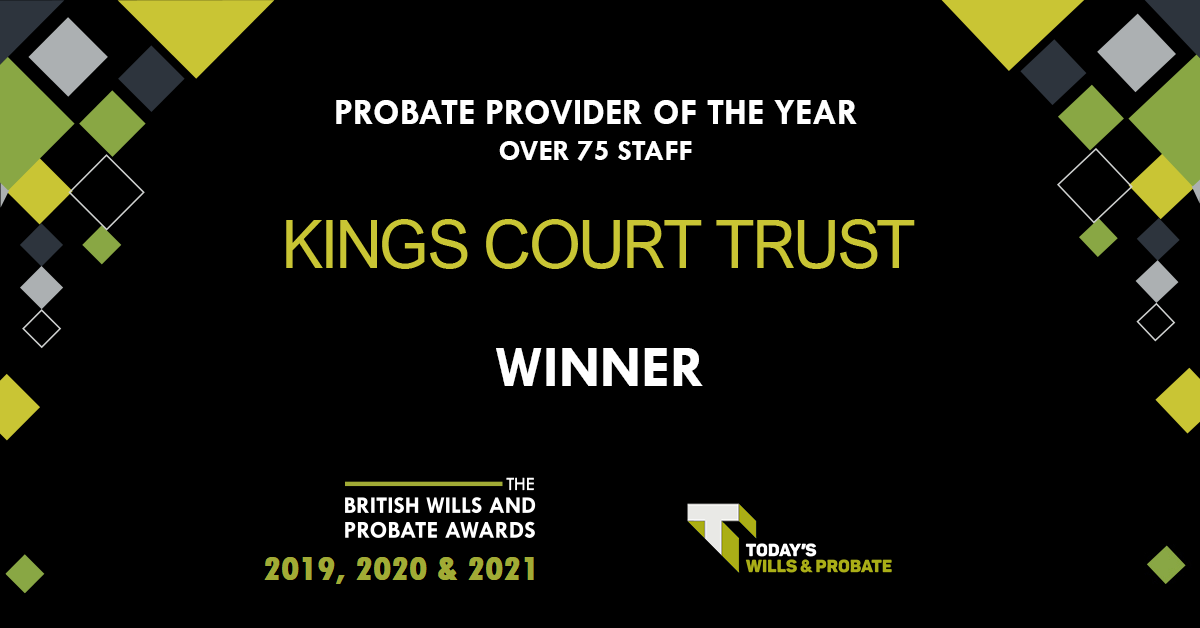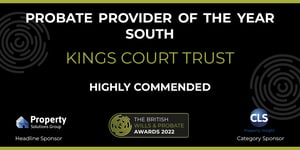When writing your Will, you may include a Trust for certain portions of your estate, such as cash gifts or property. Alternatively, you may be acting as an Executor or Trustee for a Will that includes a Trust.
One type of Trust is a Nil Rate Band Discretionary Trust (NRBDT). This blog will answer frequently asked questions about this type of Trust, Nil Rate Bands, and Discretionary Trusts in general.
What is a Discretionary Trust?
A Discretionary Trust is one where the Trustees named in the Will have power over how the allocated inheritance is spent. The details of their involvement will be laid out in the Trust document; in the case of a Will Trust, the Will becomes this document. Many people don’t understand that the Will is the Trust document and go looking for other documentation.
Depending on the wishes expressed in the Will, Trustees may be able to decide:
- What gets paid out (e.g. whether the total amount will be paid in full or in instalments)
- Which beneficiary receives the inheritance – if, for example, ten beneficiaries are named in the Trust, the Trustee(s) may only choose to pay some of these, or they may pay all of them equally. It’s completely at their discretion
- How frequently payments are made
- Whether there are any conditions as to how the money will be spent
This means that if there is a change in circumstances or financial concerns, the Trustee can protect the deceased’s assets. Most commonly, Discretionary Trusts are created to provide for a future need, such as someone who may need more financial help than other beneficiaries, or for a beneficiary who is not capable of dealing with their finances independently.
Can a Trustee remove a beneficiary from a Discretionary Trust?
Beneficiaries are chosen by the Settlor (the person who placed the assets into the Trust) and upon their death. There is no need for the Trustee to remove any beneficiaries, as they have the power to decide whether or not they will be paid. In addition, the Trustee can choose to delay the pay-out until a time they feel is appropriate.
What rights do beneficiaries have under a Discretionary Trust?
The Trustee(s) must act in the best interests of all the beneficiaries. However, as they have the right to decide how much and when income gets paid out, they also have the right to bypass beneficiaries if they feel they are not able to inherit responsibly. A Letter of Wishes can be placed with the Will and Trust document to express how the Trust should be dealt with. It’s worth considering that a Letter of Wishes is not legally binding; however, your Will and Trust document are.
Beneficiaries can request information from Trustees regarding why they have made a decision or when a decision will be made. However, Trustees may refuse to answer. Trustees need to ensure they have acted in the best interests of the Trust and beneficiaries.
What is the Nil Rate Band?
The Nil Rate Band (NRB) is the amount you can pass on to beneficiaries of your estate without being charged any Inheritance Tax. Currently, this threshold is set at £325,000 until 2028. There is also a Residence Nil Rate Band (RNRB), which is presently £175,000.
As of 2007, the NRB can be transferred between spouses and civil partners after the first death. This is referred to as the Transferable Nil Rate Band (TNRB). For example, at the current NRB allowance, if the first partner passes away and only uses £100,000 of their NRB, the remaining £225,000 will be added to the surviving partner’s threshold. They can then leave Inheritance Tax-free gifts to their beneficiaries totalling the combined amount of their NRB and remaining TNRB.
The amounts used and amounts outstanding are worked out in percentages, rather than figures, as the NRB is liable to change. However, it has not been changed since 2009 and is set to remain the same until 2028.
What is a Nil Rate Band Discretionary Trust?
Prior to 2007, NRBDTs were often used by married or civilly partnered couples to ensure that the surviving partner could receive the deceased’s NRB allowance and avoid a hefty Inheritance Tax bill.
However, now that the NRB can be transferred to the surviving spouse or civil partner, couples may not deem it necessary to include a NRBDT. Other reasons for creating a NRBDT can include:
- Reducing Inheritance Tax for a surviving life tenant in a shared property – if the property value is above their own NRB allowance, the amount from the NRBDT can be used to reduce/pay off the difference.
- Leaving other Inheritance Tax-free gifts – when estate planning, it’s important to consider the taxes that your loved ones will be left with. Placing any leftover NRB allowance into a NRBDT allows for beneficiaries to receive this amount without paying an excessive amount of Inheritance Tax.
- Providing for particular beneficiaries – for example, a NRBDT could be used to protect assets that will go to children from a previous relationship in the event that the surviving spouse remarries. The Trustee can ensure that these assets are distributed correctly.
Essentially, including a NRBDT means that any unused NRB can be held outside of the individual’s estate and therefore will not be included for Inheritance Tax purposes.
Is it better to leave inheritance in a Trust?
Using a Trust to distribute your inheritance can help to reduce the Inheritance Tax of the assets (e.g. cash, possessions, and property) that are placed into the Trust. Therefore, the full amount of your estate can be maximised for your beneficiaries.
Another advantage is that it provides for underage or vulnerable beneficiaries that cannot deal with valuable assets on their own. Naming Trustees can help give you peace of mind when estate planning and provide for your loved ones upon your death.
One potential negative that is worth considering is that it could cause stress and disagreements amongst your beneficiaries, as the Trustee may make decisions that they are unhappy about. However, by being careful with who you appoint and leaving clear wording in your Trust document/Letter of Wishes, this can be avoided.
Additionally, if a Discretionary Trust is set up, this may result in you not being able to claim any RNRB, as HMRC states that this type of Trust does not meet the RNRB criteria.
|
Glossary |
|
|
Trust |
An arrangement that allows a certain portion of your assets to be controlled by a Trustee on the behalf of those who will benefit. |
|
Trustee |
The individual(s) named in the Trust document – they will be responsible for managing the assets on the behalf of the beneficiary under the terms of the Trust. |
|
Settlor |
The individual who placed the assets into a Trust. |
|
Beneficiary |
Those who are set to benefit from the assets in the Trust or an estate. |
|
Testator |
The individual that has made the Will. |
|
Executor |
The person named in the Will who is responsible for administering the estate of the individual who has passed away. |
|
Administrator |
The person who is appointed to administer the estate when the deceased did not leave behind a Will. |
|
Personal Representative |
The umbrella term for Executor(s) and Administrators(s). |
|
Estate Administration |
The process of dealing with the deceased’s estate including all assets, debts, taxes, and distributing inheritance. |
|
Probate |
The process of obtaining a Grant of Probate, which may be required to grant the Personal Representative with the legal right to proceed with estate administration. |
Kings Court Trust is available to offer free, impartial, and practical advice on all elements of estate administration upon a death – this includes explaining the Trust wording to the Trustees and discussing the processes involved in plain English.
If you need help with probate, administering an estate, or understanding Trusts, contact us by filling in the form below or call our Client Services Team on 0300 303 9000.








%20A4%20PNG.png?width=89&height=118&name=AGFD%20Logo%20%2B%20(R)%20A4%20PNG.png)

